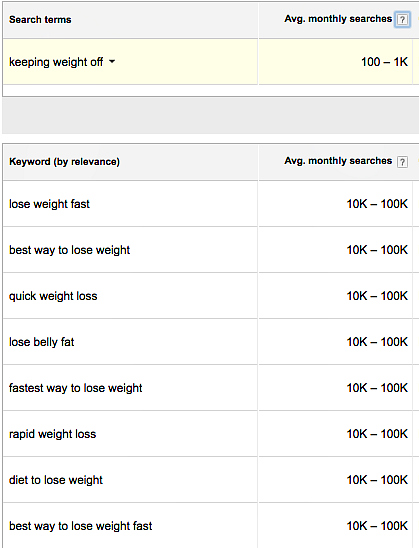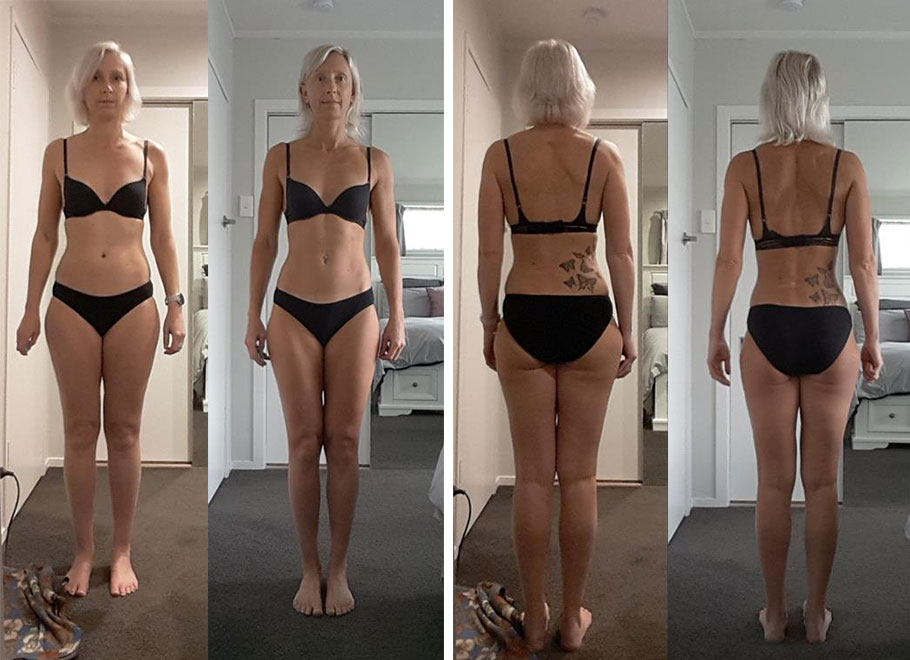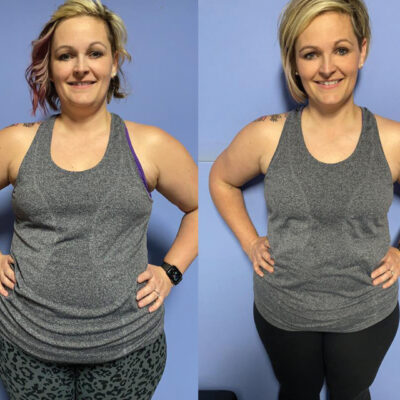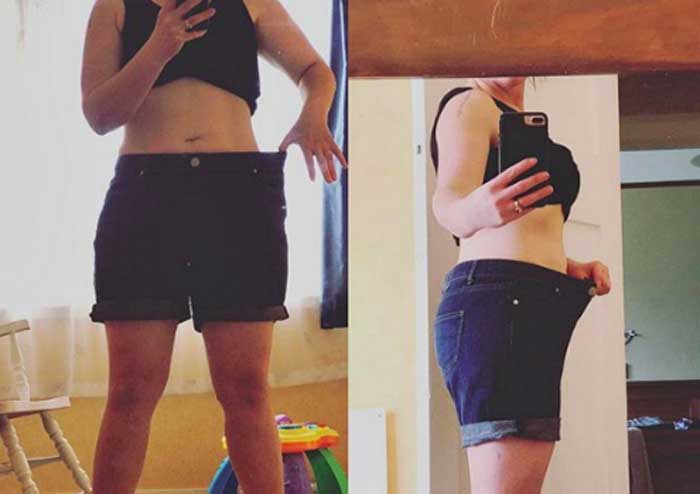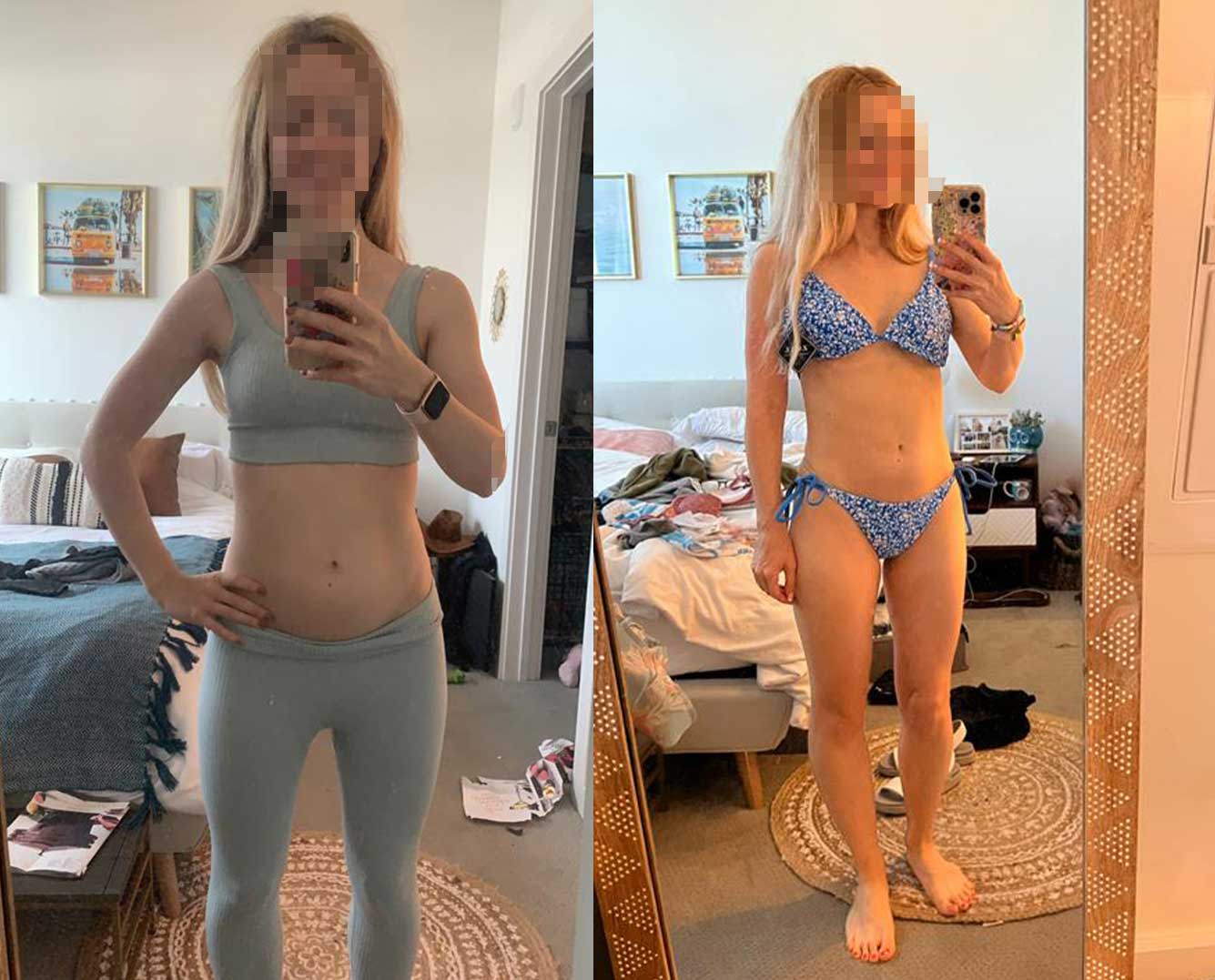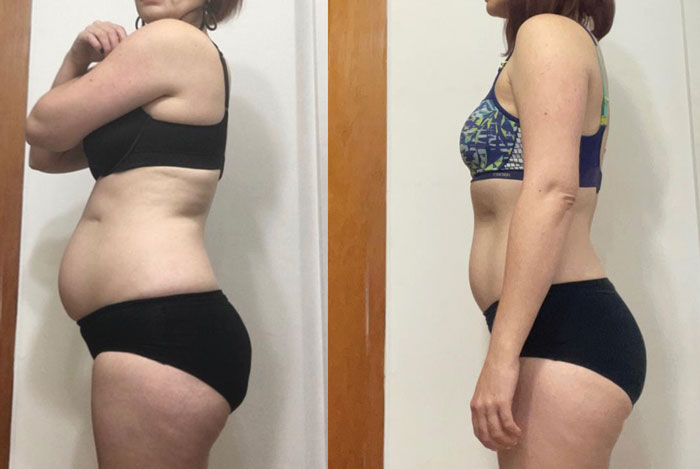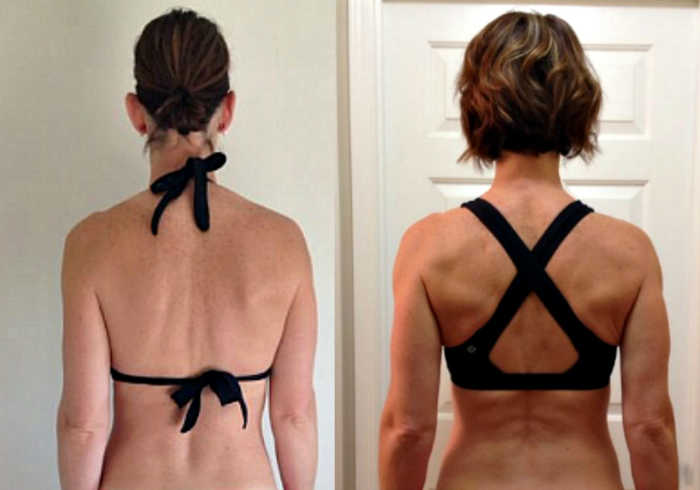Your problem isn’t losing weight – it’s keeping it off.
You might think your problem is losing weight but actually I’d bet the first time you lost weight it was quite easy. But then you gained it back and it was harder to lose the next time. And, if you regained that weight, it was even harder to lose. It’s not your imagination – it actually does get harder to lose it every time.
The problem is that weight rebounds are the rule rather than the exception and many people who lose weight and regain it end up fatter than before.
In this article, I want to convince you that weight regain is problematic and you should take it more seriously.
SERIOUSLY.
Women spend all their time worrying about weight loss when what they should be worrying about is weight maintenance.
(NOTE: In this article, I use terms like “fat” and “fatter” not because I’m being insensitive but because we are talking about the increase in your body’s fat mass as opposed to lean mass so I can’t just use the term “weight gain” which encompasses both.)
So Why Don’t You Hear More About Weight Maintenance?
No one is talking about it because it doesn’t sell. Everyone is looking for a quick fix to weight loss. You fall for the celebrity driven programs, the selfie-taking Instagrammers, the amazing program your friend swears by – the things that look good and promise fast results. Slow, sensible weight loss (the kind that is most likely to stick) doesn’t sell well.
In fact, hardly anyone is thinking about it. I took a screenshot of some Google analytics that show the amount of searches people do for certain topics. The searches for “keeping weight off” are a lot less than the searches for quick fixes.
As a coach, I’m really disheartened by these results. If sensible approaches to weight loss don’t sell, you can imagine how difficult it is to sell the idea that your hard work has to continue after you’ve lost weight. No one wants to hear that. No one wants to buy that. But I’m going to try anyway.
Why Maintaining Your Weight Is More Important Than You Think
Repeated weight gain and loss can create a higher body fat set point and metabolic adaptations that make it really tough to lose weight.
If you’ve lost weight, your chances of keeping it off are low. Studies show that most people regain it and that many people end up fatter than before. This is because of something known as dieting-induced weight gain, also called fat overshooting.
You really need to understand fat overshooting so stick with me.
When you lose weight, your body compensates with metabolic adaptations to try to keep your weight and fat levels stable. For example, your metabolic rate slows and your hormonal output changes to prevent fat burning and to stimulate eating. No one knows for sure what causes fat overshooting but it’s likely one of these metabolic adaptations – your body is fighting to maintain a certain level of fatness to keep you fertile and alive.
The interesting – and unfortunate – thing about fat overshooting is that it is an overcompensation. Not only will your original fat level be restored, but your body overcompensates and leaves you fatter than before.
Here’s how it works.
The amount of fat cells you have is generally stable after puberty. Throughout your adult life, the reason you get fatter is because they increase in size, not number.
With weight regain following weight loss, fat cell numbers increase. This is one of the only times times in adult life when you will make new fat cells.
One study found that weight regains as little as 1.6 kg over 8 weeks led to the creation of approximately 2.6 billion new adipocytes! The problem with making new fat cells is that you can never lose them. So that’s 2.6 billion extra fat cells you will never be able to lose.
You can shrink their size but because you now have more fat cells, your body fat set point goes up. You now have more fat than before which makes it harder to get down to that “ideal” size again.
At some point you are probably going to try to lose that weight again. Studies also show that repeated cycles of weight loss and regain appear to enhance subsequent weight gain. Put simply – the more you diet, the more likely it is that you will be overweight!
This is probably because the more you diet and the more you intensify your efforts to lose weight, the stronger your metabolic adaptations to weight loss are going to be. Another way of putting this, the more often you regain weight and try to lose it, the more your body is going to fight against you.
You can see why traditional weight loss approaches won’t work for you. You need a better plan.
How To Maintain Weight Loss
If the problem is weight regain then the solution – which almost no one is teaching – is weight maintenance.
We need a whole new way of thinking about weight loss. Most people think there will be a beginning (when they start losing weight) and an end (when they reach their goal weight). However, reaching that goal weight is more like a mid-point in your journey with the next stage being weight maintenance. So it looks more like this:
Stage 1: Weight loss.
Goal weight achieved.
Stage 2: Weight maintenance.
This simplifies things but you get my point – you have to stop thinking that once you reach your goal, life is going to be different. Unfortunately your new lean body is high maintenance. Especially in the beginning as you settle into your new weight.
There are two ways to maintain your weight after you’ve reach your goal:
1. Stick with the same amount of calories and exercise you’ve used to reach your goal,
or
2. Reverse diet up to a higher level of calories so you can eat more and maintain your weight.
1. Stick with the same amount of calories and exercise you had while losing weight
When you lose weight by dieting your body adapts to the lower amount of calories. This means that to prevent regaining weight, you’ve got to keep your calories and activity level the same as you’ve had it while losing weight. The longer and more severe your calorie deficit was while losing weight, the more severe your metabolic adaptations will be – which means your body will be primed to regain fat. You’ll have to be extra careful or the weight will pile back on super fast.
Keeping up a restrictive regime can be really tough because you want to have a life and be able to enjoy food. It’s especially difficult if you’ve been eating very low calories and/or doing a lot of cardio because at some point you’ll want more balance in your regime. This is one of the reasons I always teach my clients to eat as much as possible when losing weight and to find their “minimal dose” to lose weight. From the outset my goal is to minimize the metabolic adaptations that clients will have while dieting by creating as small of a deficit as possible. By encouraging them to eat more I’m also hoping to create a lifestyle friendly approach to eating that they can maintain in the long run because I know that the second option, reverse dieting, isn’t for most women.
2. Reverse diet so you can eat more
Another way to avoid weight regain is to use a reverse diet – a diet after the diet.
Reverse dieting involves slowly increasing calories (usually every week or two) to help recover the metabolic rate you had before your weight loss. The goal is to be able to eat more while maintaining your weight.
However, reverse dieting requires commitment to calorie tracking and sticking very close to the set amount of calories each day so that all your calories add up the right amount at the end of each week. The precision, diligence and commitment required to reverse diet means that it’s not a strategy for most women. In my experience, reverse dieting takes even more diligence than weight loss dieting, and the end goal is simply weight maintenance which isn’t motivating enough for most women.
Reverse dieting is especially complicated for women because our weight fluctuates during the month, often multiple times, which makes it challenging to assess progress. Basically, it’s going to take a lot more time for a woman to successfully reverse diet than a man because of all our weight fluctuations.
To learn more about reverse dieting and see an example of my reverse diet week to week, check out this article:
Reverse Dieting: Rebuilding Your Metabolism, Eating More And Staying Lean
What This Means For You
If most people regain the weight they lose, then traditional weight loss approaches aren’t working. We need to change how we approach weight loss. Hopefully I’ve convinced you that weight maintenance is really important and from the outset of your weight loss journey you need to be thinking about it. Neither of the strategies I’ve given you for maintaining your weight is perfect but you have to pick one or you will end up regaining all your weight.
Since reverse dieting isn’t a strategy for most women, then the only choice you have is to stick with the calories and activity level that got your to your goal weight. This is the reason I always talk about finding your minimal dose when it comes to exercise and nutrition (you can learn more about your minimal dose in my free ebook which you can download here). If you minimize the calorie deficit you have to make when losing weight, it will be a lot easier to maintain that amount of calories in the long run.
Whatever you do, when you commit to losing weight, commit to also keeping it off. This is the missing link in getting and keeping the body you want.
Related Articles
How To Prevent Weight Loss Plateaus And Rebounds
How Many Calories Do You Need: Everything You Should Know [Infographic]


